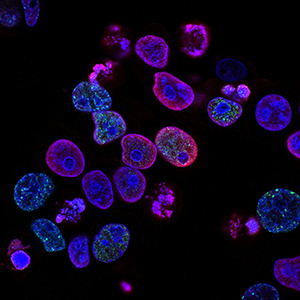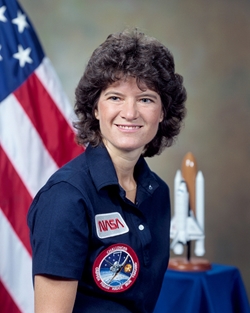- Link to News & Events page from breadcrumb
- IP Group news
IP Group news 0
Blog
Celebrating International Day of Women and Girls in Science
11 Feb 2021
Today is ‘International Day of Women and Girls in Science’. A focus of the day this year is around SDG 9 which aims to ‘build resilient infrastructures, promote inclusive and sustainable industrialization and foster innovation’ and the women and girls, who are leading innovation and a call for actions to remove barriers which hold them back.
We wanted to highlight some of our many IP Group colleagues in London that lead this innovation and learn about what inspired them into sciences as young girls. And their advice to the budding scientists of the future is unanimously ‘go for it!’
Puneeta Nath, Project Manager Life Sciences
‘My interest in biology and therapeutic medicines did not really start until I was at secondary school and was spurred on at the time by the huge international effort for finding new treatments for the HIV epidemic’
Were you interested in science when you were young?
Yes! My parents bought my first scientific encyclopaedia when I was aged 7 or 8 and I would spend hours reading and looking at pictures, specifically the sections on the solar system! However, my interest in biology and therapeutic medicines did not really start until I was at secondary school and was spurred on at the time by the huge international effort for finding new treatments for the HIV epidemic.
Also it was my curiosity that got me interested in science. I was always fascinated at how the human body works, what processes caused disease and ultimately how treatments could be made to help patients.
What would you say to girls who want to get into science-based subjects/careers?
Go for it! Follow your passion and do not let anyone discourage you. Above all do something that you really enjoy because the road ahead will be long and unlikely to be straightforward but persevere and you will succeed.
Jackie Fok, Investment Analyst Life Sciences
Were you interested in science when you were young?

I would say I was definitely curious when I was young, but not particularly interested in science per se. I would ask for a dig-a-dinosaur set for Christmas but not say, a microscope kit. Although we did have a “human body for kids” book lying around the house when growing up with lots of colourful diagrams of the network of blood vessels in the body or different organs for example, which I used to read at night when I couldn’t fall asleep. Perhaps my interest in human biology started there?
Was there a scientist/teacher/anyone else who interested you and inspired you?/ If not then what did get you interested in science?
I enjoyed science and maths at school because I liked how there were sets of rules and answers were usually more or less black-and-white. I chose Biology at A-level and still remember the moment when our science teacher told us that what we understood to be what our cells were made up of, a nucleus, cell membrane and mitochondria, was hugely simplified in our GCSE’s and that in fact, there were all of these other odd-looking organelles with funny names (e.g. Golgi apparatus?!) that sat jam-packed next to each other inside the cell. Our genetic code, our cells and how that all comes together to give us our functioning body whether in health or in disease is much more complex than I could have ever imagined and this fascination is still what keeps me interested in science today!
What would you say to girls who want to get into science based subjects/careers?
A would say go for it and see where it takes you! If you find science subjects at school interesting, definitely stick with them and get plugged in, whether it’s at STEM Club or science competitions, attending a Pint of Science event or listening to the Infinite Monkey Cage podcast series. Also, don’t hesitate to study science at uni, even if a career in research ends up not being for you, a science degree will provide you with life-long skills in analytical thinking and the ability to communicate complex ideas in a clear manner that will be key in whichever career path you choose.
Cassie Doherty, Investment Director Parkwalk Advisors
‘Listening to a talk on Cystic Fibrosis and the ground-breaking work around gene therapy to treat it inspired Investment Director Cassie to study science at University’: “I hadn’t seen so clearly as to how science can have such a major impact on the lives of patients.”
Were you interested in science when you were young?
Yes, I’ve always been interested in all sorts of science from a young age. I loved nature when I was little, especially rummaging around in the garden to find bugs to look at under a magnifying glass or bits of leaf under my mini microscope. I remember when I was at junior school receiving a chemistry set as a Christmas present from my Uncle, which even came with safety goggles! I did get in trouble on one holiday in the Lake District where I ran a blinded experiment to see if my parents could determine which water sample I’d got from the local steam and which from the tap by tasting both, not that they knew I was doing this, and I got told off after as I could have poisoned them if there was something rotting in the water upstream.
Was there a scientist/teacher/anyone else who interested you and inspired you?
I had some really great science teachers for my A-levels, but I think it was one talk that really inspired me and made me think seriously about studying science at University. It was a talk in 1996 about the disease Cystic Fibrosis, which is an inherited disease that affects the lungs and digestive system. The talk covered the impact of the disease on patients, but also the ground-breaking research that had discovered the gene responsible for the disease, and the potential for gene therapy to treat the disease in the future. Maybe this should have been obvious to me, but before this point I hadn’t seen so clearly as to how science can have such a major impact on the lives of patients.
What would you say to girls who want to get into science-based subjects/careers?
Go for it! Studying science opens up a huge number of career options for you. You can really make a difference to whatever you are passionate about, whether that is improving healthcare, building a sustainable planet or feeding the world. Whatever career path you take, science never stands still, new discoveries will be made and there will always be problems to solve. If you enjoy science you’ll continue to learn throughout your career.
Manjari Chandran-Ramesh, Investment Director Technology
“My very first inspiration to do engineering came from my music teacher”
Was there a scientist/teacher/anyone else who interested you and inspired you?/ If not then what did get you interested in science?
Discussing science at home was inevitable with a Reconstructive Surgeon for a father and Nutritional Science majored, science teacher for a mother. Add to this an Anatomy Prof and Mathematician for grandfathers and I can’t remember a time when I wasn’t discovering something STEM related with one of them. However, I took the decision to do Engineering when I was eight years old due to my music teacher.
She was 70 years old when I started with her at the age of eight due to my music scholarship. A concert vainika (similar to concert pianist – she actually performed at the Royal Albert Hall here ) she had been on stage since she was 10. For decades, she was one of only three women out of 100s of men to perform in an era when women playing on stage to an audience was frowned upon. She was amazing – a woman in a male dominated environment, a full-time working mother, who also embraced technology!
She adopted new technology even at the age of 70 in a way that nobody else did – our instrument is acoustic and can barely be heard unless people sit incredibly close to it. 32 years ago, a contact microphone, like you get for electric guitars here, was unheard of, in Indian classical music. I believe she was the first vainika to get these microphones onto our instrument.
The interest in the working of the contact microphone inspired me to then take a deeper dive into engineering and I started programming by the time I was nine. I was an engineering major with a computer science minor at University nine years later.
Kelsey Skinner, Partner Technology

Was there a scientist/teacher/anyone else who interested you and inspired you?/ If not then what did get you interested in science?
For me, it was Sally Ride: The first US woman astronaut (in 1983). An engineer, a Stanford grad, coincidentally a rugby player (I went on to be all three of those myself!). I dressed up as an astronaut every year for Halloween. I threw myself into math and science once I understood that was what was necessary to be an astronaut. And I remember showing up on the first day of my advanced math course, at age 8, and the teacher’s first words to me that I would be the only girl in the class. I draw strength from Sally Ride – she was totally surrounded by all male astronauts. I got to meet her when I was a freshman at Stanford and still admire all that she did for a generation of young girls, myself included.
